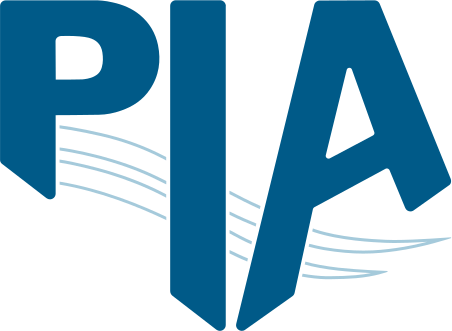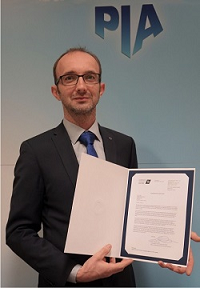New memorandum of agreement offers clients the ability for European and American wastewater system testing and certification from one location

BRUSSELS, Belgium and AACHEN, Germany – Global public health organization NSF International and PIA - Prüfinstitut für Abwassertechnik GmbH (PIA GmbH), located in Germany, are celebrating their 10th anniversary of collaborating on both North American and European standards for the European wastewater treatment system industry, allowing European manufacturers to access testing services close to their facilities.
Working with PIA, the largest testing laboratory in Europe for the decentralized wastewater industry, NSF International has successfully expanded services throughout Europe specifically to test to the NSF/American National Standard Institute (ANSI) and European standards for wastewater treatment facilities.
Based on the success of this collaboration, NSF International and PIA have signed an additional memorandum of understanding (MOU) to declare a mutual intention to further develop this collaboration to cover consultancy and certification projects.
The NSF and PIA collaboration includes testing for these standards:
- NSF/ANSI 40: Residential Wastewater Treatment Systems for materials, design, construction and testing procedures of small and residential treatment plants for the North American market.
- NSF/ANSI 245: Wastewater Treatment Systems - Nitrogen Reduction associated with the requirements to meet the growing demand for nutrient reduction in coastal areas and sensitive environments.
- NSF/ANSI 350: Onsite Residential and Commercial Water Reuse Treatment Systems which establishes materials, design, construction and performance requirements for onsite residential and commercial water reuse treatment systems, and also sets water quality requirements for the reduction of chemical and microbiological contaminants for non-potable water use.
- European Standards – PIA tests against European standards for NSF customers which include:
- EN 12566 for small wastewater treatment plants and wetlands
- EN 12050 for wastewater lifting plants
- BS 8525 for domestic greywater treatment equipment – requirements and test methods
- EN 1825 for testing of grease separator systems
- EN 858 for testing of separator systems for light liquids
“Through this collaboration with PIA, NSF International has been able to strengthen our expertise in the testing and certification of products to North American and European wastewater standards,” said Tarik Bellahcene, Managing Director, EMEA, NSF International. “This successful 10-year collaboration has provided our clients with an established testing facility and development laboratory as well as the shared expertise from NSF International’s technical and scientific professionals and PIA engineers and experienced employees. NSF International is pleased to expand this collaboration with PIA with the latest MOU for consulting and certification services.”
“PIA is happy to be the first testing institute for NSF/ANSI wastewater standards in Europe,” said Elmar Dorgeloh, General Manager, PIA. “For PIA customers it is important to have the ability to get the testing for the European and American market at one place. We are glad to celebrate 10 years of partnership between NSF International and PIA this year.”
Editor’s note: For media interested in more information or to request an interview with Tarik Bellahcene, Managing Director, EMEA, NSF International, contact Liz Nowland-Margolis at or +1 734-418-6624.
About NSF International: NSF International is a global independent organization that writes standards, and tests and certifies products for the water, food, health sciences and consumer goods industries to minimize adverse health effects and protect the environment (nsf.org). Founded in 1944, NSF is committed to protecting human health and safety worldwide. Operating in more than 165 countries, NSF International is a Pan American Health Organization/World Health Organization Collaborating Center on Food Safety, Water Quality and Indoor Environment.
NSF’s Global Water Services include testing, certification and auditing for municipal water treatment components and chemicals, plastic piping systems, plumbing fixtures and fittings, point-of-use and point-of-entry water systems and filters.
NSF Sustainability offers a range of standardized and proprietary methods of measuring sustainability for organizations, products, processes, supply chains and services. Certification, testing and claims validation help reduce investment risk, instill marketplace confidence and promote the acceptance of more sustainable products and services.
About PIA: PIA is a European testing and development body for decentralized water treatment technologies on land and on sea. Our services include testing of wastewater facilities including small wastewater treatment systems, sewage pumping stations, ship wastewater treatment systems, greywater treatment systems and storm water treatment systems. PIA also offers support and consultation for CE ("Conformité Européenne") marking. PIA also provides compliance testing according to American standards.


